On the afternoon of June 5, SCMU held the inauguration ceremony for its School of Artificial Intelligence alongside an expert symposium on AI development at the Academic Exchange Center. Song Quan, Director of the Education Department of the National Ethnic Affairs Commission; Zhang Pingwen, Academician of the Chinese Academy of Sciences and President of Wuhan University; Feng Dan, Vice President of Huazhong University of Science and Technology; Wang Fei, General Manager of Xiaomi Group’s Wuhan Headquarters; University Party Secretary Xu Yeqin; President Liu Yi; university leaders Li Hongyan, Song Fajun, and Fang Debin; along with expert scholars from Peking University, Wuhan University, Huazhong University of Science and Technology, Beijing Institute of Technology, Minzu University of China, Nanjing University of Science and Technology, and other institutions, as well as enterprise representatives, alumni representatives, and representatives from various university departments and faculty and students from the School of Artificial Intelligence, totaling over 200 attendees, gathered to discuss new pathways for AI discipline development and talent cultivation. Song Fajun and Fang Debin presided over the inauguration ceremony and expert symposium respectively.
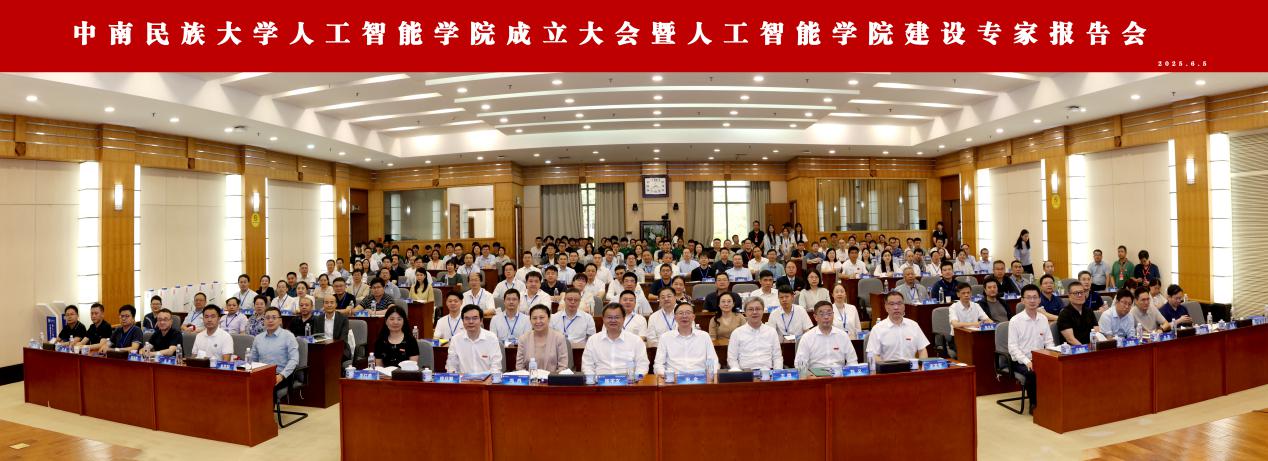
Conference scene. Photo courtesy of School of Artificial Intelligence
During the ceremony, Zhang Pingwen, Song Quan, Feng Dan, Wang Fei, Xu Yeqin, and Liu Yi jointly unveiled the School of Artificial Intelligence.
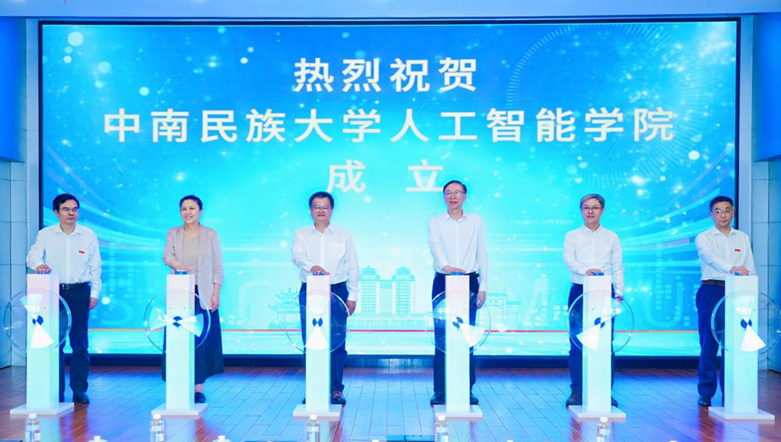
Unveiling ceremony. Photo courtesy of School of Artificial Intelligence
In his remarks, Liu Yi stated that establishing the School of Artificial Intelligence represents another major initiative for the university to advance “Double First-Class” construction and serve national strategy. The university will uphold its fundamental mission of nurturing talent for the Party and the nation, focusing on cultivating character and strengthening foundations, emphasizing interdisciplinary integration, empowering scientific research paradigm innovation, adhering to “AI for good” and “people-centered” principles, and building a “AI+X” interdisciplinary talent cultivation system to develop well-rounded AI professionals with deep patriotic sentiments, cutting-edge algorithmic technology, and industry practical capabilities.
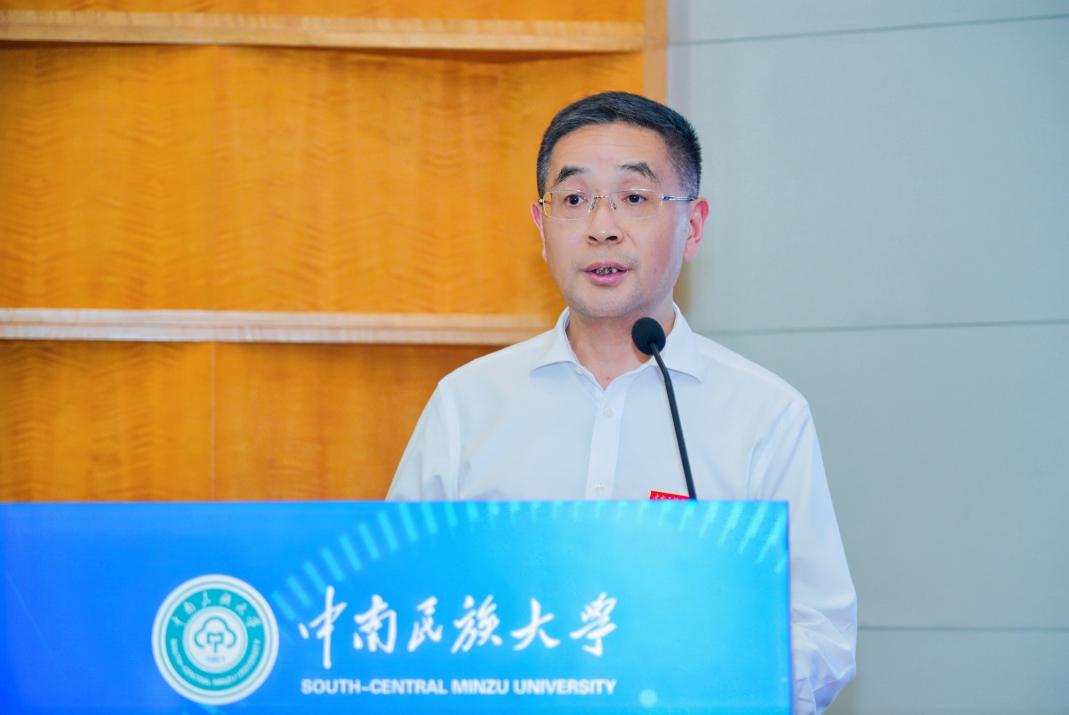
Liu Yi delivering remarks. Photo courtesy of School of Artificial Intelligence
Academician Zhang Pingwen congratulated SCMU on establishing the School of Artificial Intelligence. He noted that the school’s establishment marks both an important milestone in the university’s development and a strategic response to contemporary needs. He expressed hope that SCMU’s School of Artificial Intelligence will strengthen its faculty, deepen industry-education integration, leverage the distinctive advantages of ethnic universities, focus on interdisciplinary research combining artificial intelligence with ethnic cultural heritage, frontier governance, ecological protection, and economic development in ethnic regions, charting a new path for AI discipline development with distinctive characteristics.
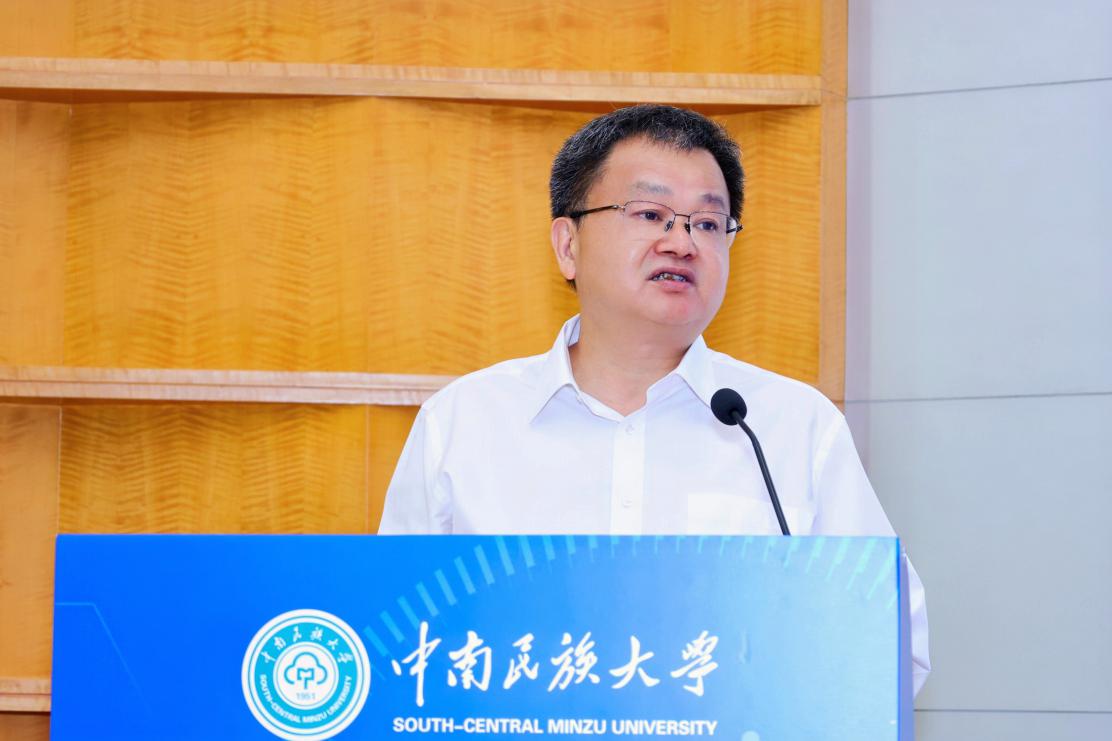
Academician Zhang Pingwen delivering remarks.
Photo courtesy of School of Artificial Intelligence
Zeng Zhigang, Dean of the School of Artificial Intelligence and Automation at Huazhong University of Science and Technology, delivered remarks representing peer institutions. He suggested that the school should focus on distinctive features to create differentiated competitive advantages, deepen collaboration to vigorously promote industry-academia-research-application integration, and pool resources to carefully construct an innovation ecosystem. Wang Fei spoke on behalf of partner enterprises, stating that Xiaomi Group will establish closer cooperative relationships with the new school, actively promote university-enterprise collaborative education mechanisms, and jointly build the School of Artificial Intelligence.
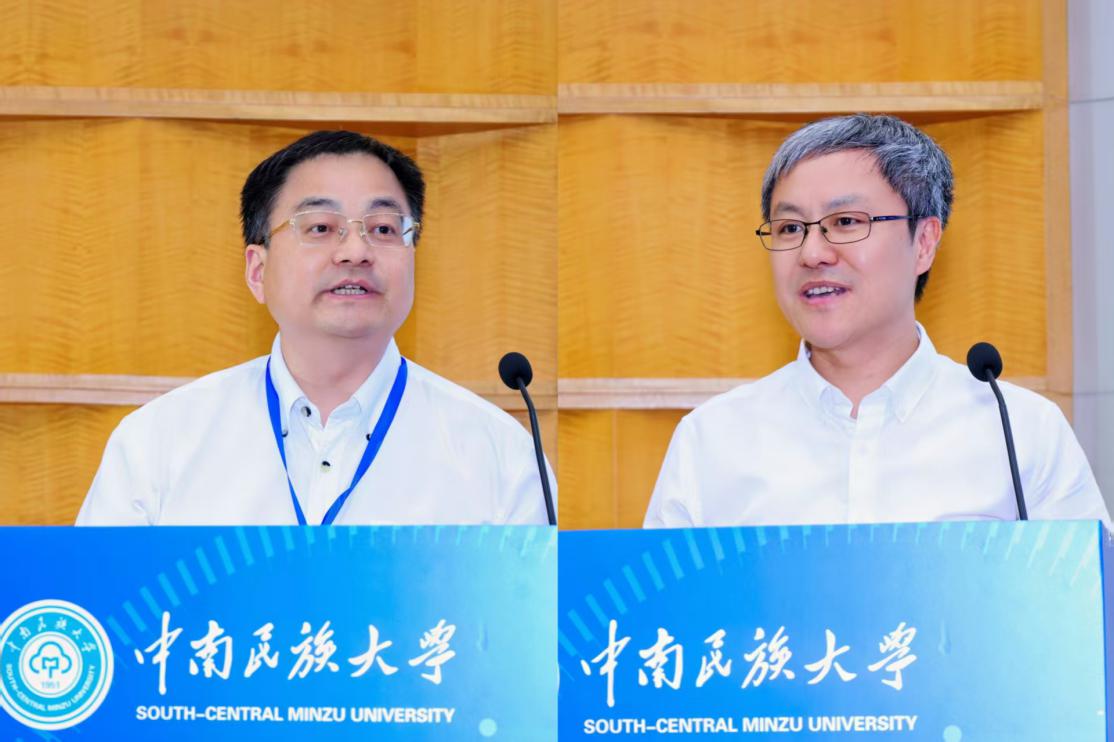
Zeng Zhigang and Wang Fei delivering remarks.
Photo courtesy of School of Artificial Intelligence
During the meeting, Li Hongyan read the university’s document regarding the establishment of the School of Artificial Intelligence and personnel appointments. Tie Jun, Dean of the School of Artificial Intelligence, provided a detailed introduction to the school’s development plan. He stated that the school will focus on three levels: “discipline and program development, institutional transformation and upgrading, and university-wide interdisciplinary integration”. Oriented toward national needs in the AI era and the practical requirements of building a community for the Chinese nation, the school will emphasize three core competencies: “algorithmic technology + patriotic commitment + engineering practice”, cultivating high-quality AI talent who are “politically steadfast, technically solid, comprehensively capable, and service-oriented”.
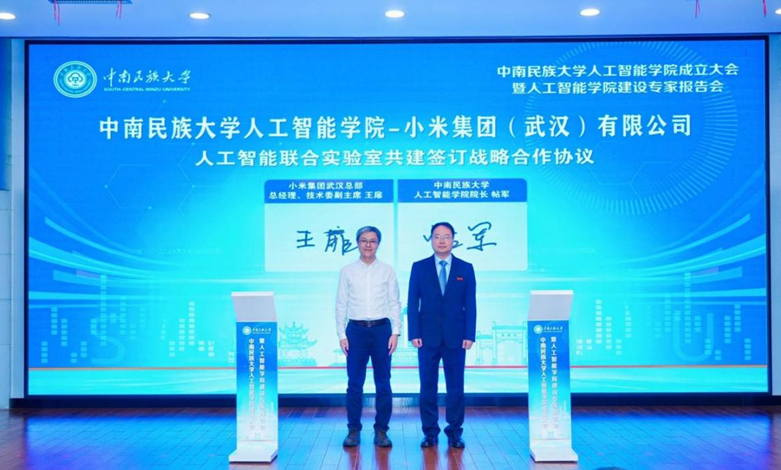
Signing ceremony. Photo courtesy of School of Artificial Intelligence
The ceremony also featured a signing ceremony for the joint AI laboratory between SCMU’s School of Artificial Intelligence and Xiaomi Technology Wuhan Co., Ltd. Both parties expressed their commitment to strengthening exchanges and cooperation in talent cultivation, technological empowerment, and scientific innovation.
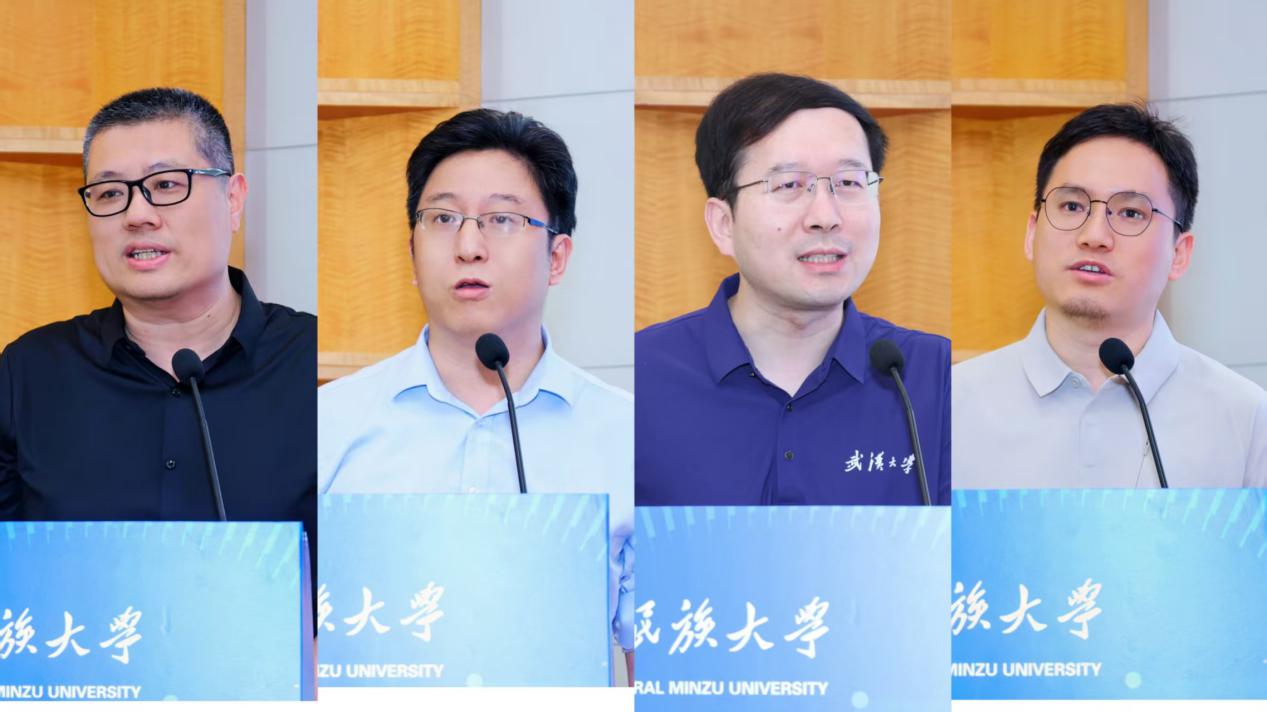
Experts delivering reports. Photo courtesy of School of Artificial Intelligence
Following the inauguration ceremony, the university hosted a symposium on AI school development. Experts including Professor Wang Tengjiao from Peking University’s School of Computer Science, Professor Bai Xiang, Dean of the School of Software at Huazhong University of Science and Technology, Professor Du Bo, Dean of the School of Computer Science at Wuhan University, and Professor Shu Xiangbo from the School of Computer Science and Engineering at Nanjing University of Science and Technology delivered keynote presentations on topics including computational social science in the AI era, progress and trends in document intelligence large models, medical large model methods and practices, and federated learning methods and applications for aggregation optimization.